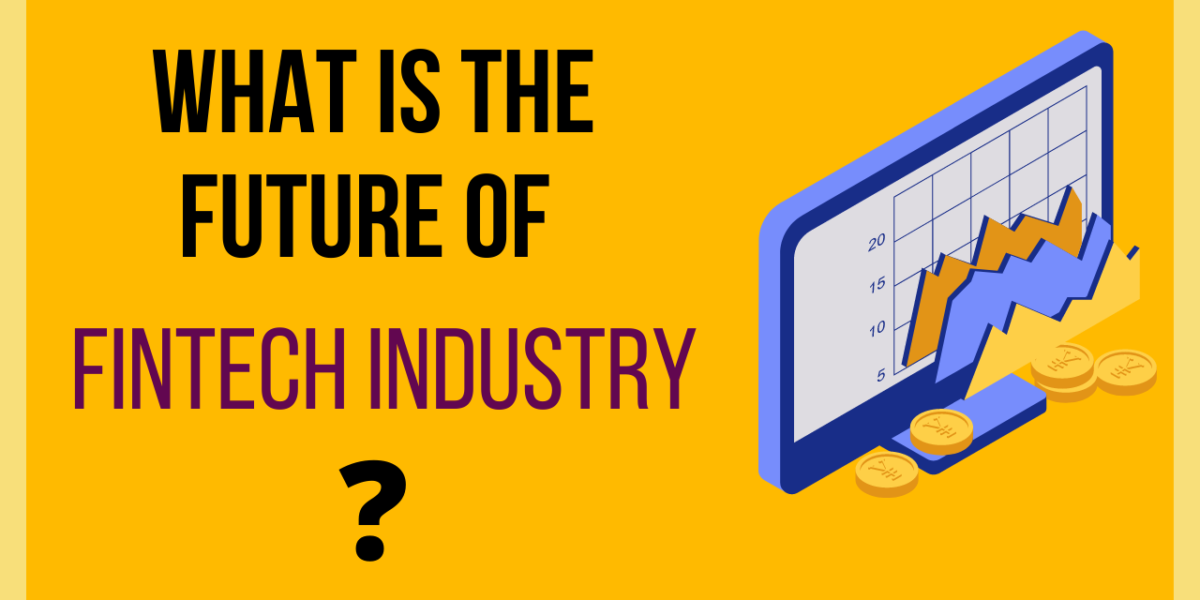The Fintech Industry has seen a drastic shift to digital transactions in the last few years. The rise in internet usage and smartphone penetration has played a critical role to enable this revolution in terms of adoption.
India is one of the fastest-growing fintech hubs in the world. From WhatsApp pay to google pay and amazon pay, the big tech lining up to enter this rapidly growing industry.
Due to lockdown, 1.4 billion people shifted to digital like never before. UPI payments surged to a record high of 1.49 billion transactions in July.
Digital wallets are doing fast business regarding bill payment and have moved to smartphones. Now, we can pay the insurance premiums with one click. Also, the bank is now an app.
Now, the question is what does the future of the fintech industry holds for this fast-growing highly competitive market? Firstly, we’ll discuss the basics of the Fintech Industry. So, Let’s start.
Table of Contents
Fintech Industry Overview

The industry is huge and will keep on expanding in the coming years. According to CB insights, there is worth a combined $154.1 billion fintech unicorn.
Currently, there are 2174 Fintech start-ups. There is 486 start-up that is in wealth tech. Similarly, there are 365 start-ups in the lending space. Also, there are 111 start-ups are in the insurance tech space. Approximately there are 105 start-ups in digital payment.
One of the driving forces behind this is the fact that many traditional banks are actively investing in the acquisition or partnership of Fintech start-ups because it is easier to give the digitally-minded customers what they want. In addition, it moves the industry forward and stays relevant.
What is the Future of the Fintech Industry?
In terms of the future, Fintech services are getting embedded into a specific segment. Then there is also a lot of positive changes that is actually happening. The regulation allows a lot of third parties to access financial data.
A study in Boston has announced that the Indian Fintech industry could reach the US $ 150-160 billion by 2025.
Bank opening up to their services to partnering with fintech to grab the specific opportunity. Whether it is like wealth management or whether it is like segments which are not been seen before.
A wave of Fintech Industry
We have seen the first wave of fintech which is actually primarily driven by digitalization. But in the second wave of fintech, consumers demand more in terms of experience, niche focus services. That is actually the larger opportunity for the fintech industry.
The Indian fintech ecosystem is rising right now and everybody is interested. Local players, global players and everybody is trying to enter this industry. Its the Indian companies which will end up winning the ecosystem by a partnership with global companies.
India is a developing economy and whether it is the internet industry or the fintech or payment industry in India. We need a lot of new start-ups to attract attention. Government and the ecosystem and all we definitely must encourage many more Indian companies to come forward.
All Giant companies are looking at the Indian economy for getting a billion users. I am a big believer that India has had a fairly open market so far and with whatever is happening. We might have some restrictions but we must allow the Indian economy, Indian founders and Indian ecosystem to develop.
Conclusion
The Fintech Industry is growing rapidly and partnering with traditional banking, insurance and retail sectors to serve the customer. Due to several factors such as innovative startup, high market demand, immense usage of smartphone and internet penetration, youth population with the mediam age in the 20s, and growing awareness of financial technology among the people has provided the Fintech industry with a much-needed boost. So, the future of the Fintech industry is very bright and growing which will bring a revolution in the financial market and industry.

